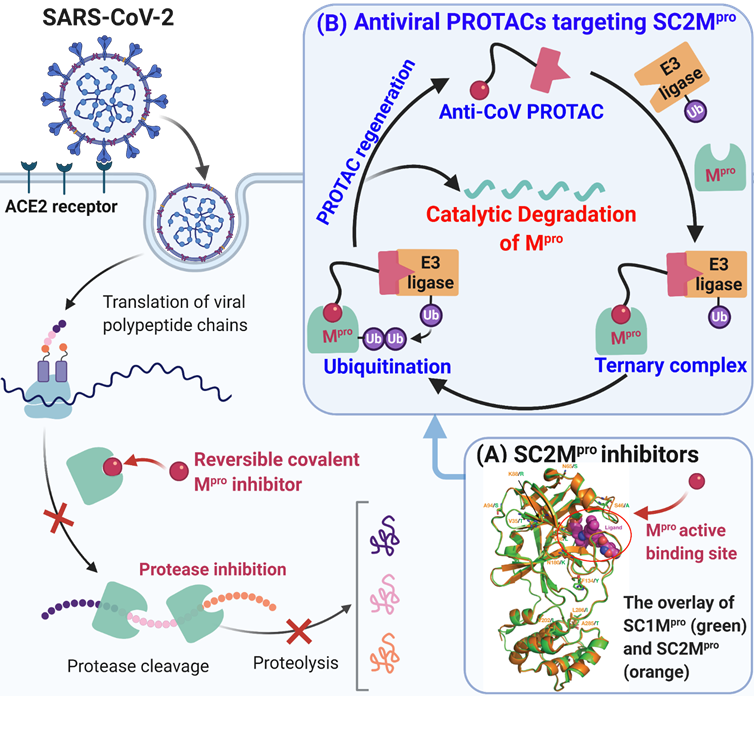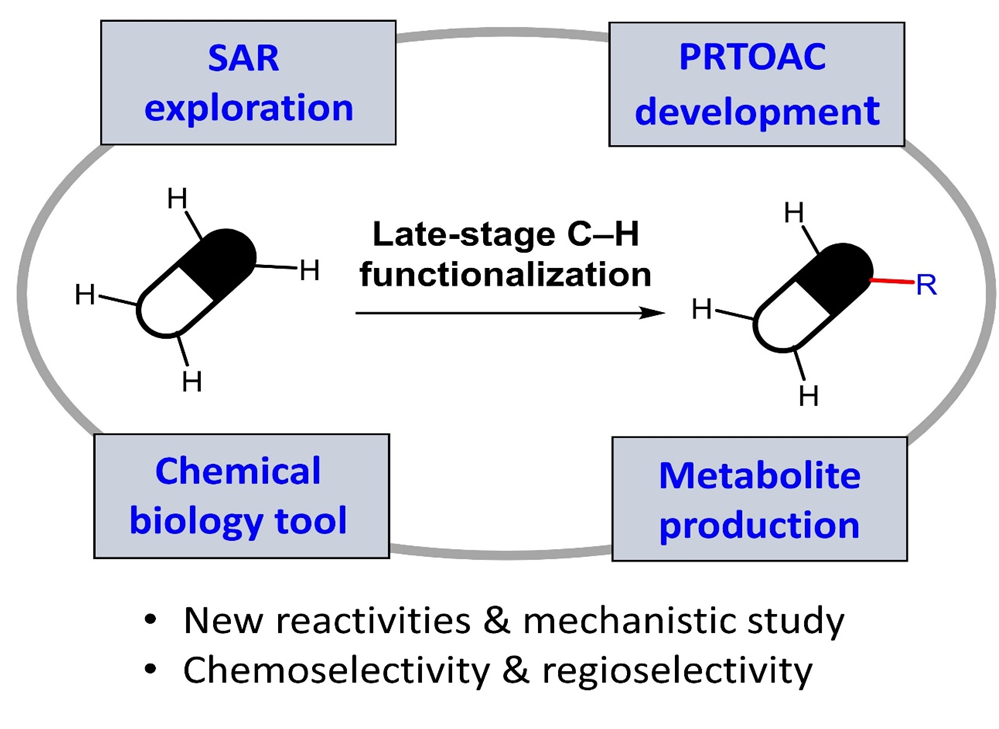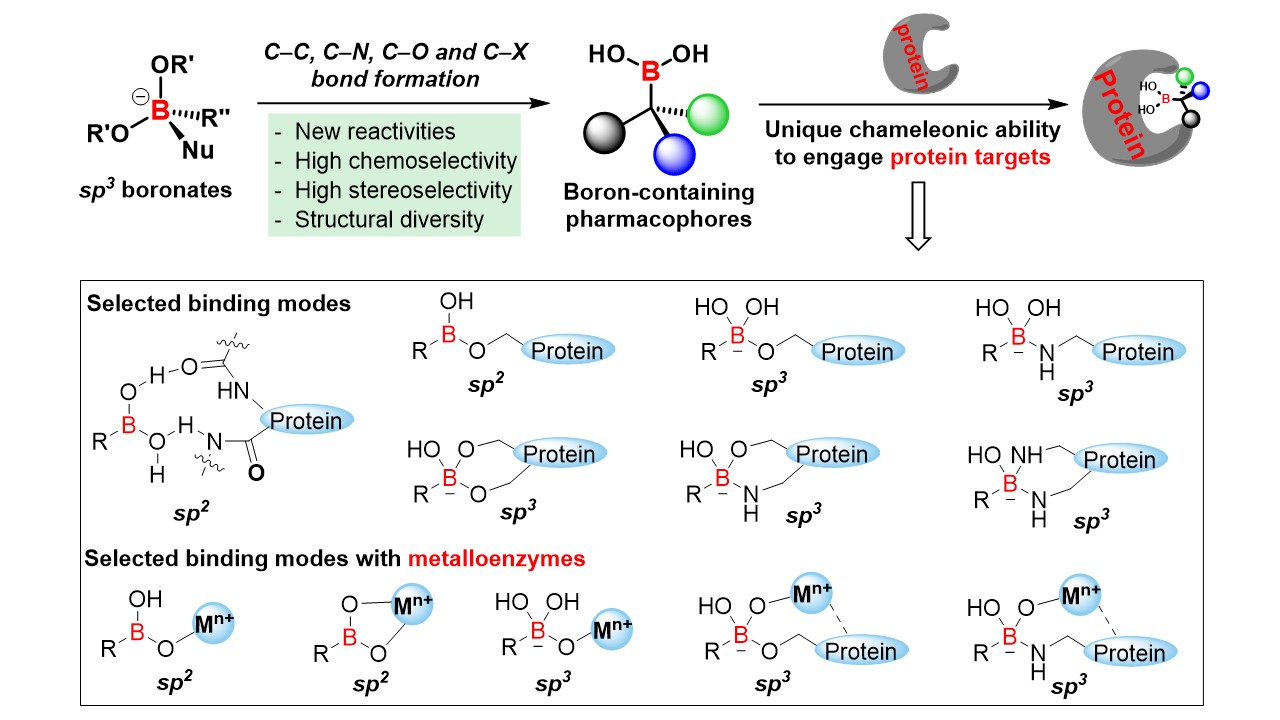Research
Small-Molecule Approaches to Targeted Protein Degradation for Drug Discovery

Proteolysis targeting chimera (PROTAC) is a novel technology for targeted protein degradation in precision medicine. PROTACs have many advantages compared to traditional occupancy-based inhibitors, including (i) degrading “undruggable” targets; (ii) weak binders can become potent degraders; (iii) catalytic nature to allow for sub-stoichiometric activity and improved efficacy; (iv) enhanced target selectivity; (v) overcoming drug resistance. We work on the development of small-molecule approaches to targeted protein degradation for drug discovery, particularly focusing on new therapeutics for the treatment of COVID-19 and cancers.
Late-Stage Functionalization and Its Medical Applications

Late-stage functionalization (LSF), especially of C–H functionalization, offers a fast approach to generate analogs of drugs and drug-like molecules that has great potential to dramatically accelerate the drug discovery process: (i) SAR exploration; (ii) PROTAC development; (iii) chemical biology tool; (iv) metabolite production. We work on the development of novel efficient methods for late-stage C–H functionalization of drugs and drug-like molecules.
Organoboron Chemistry and Its Medical Applications

Boron is a unique element that finds versatile utilities not only in organic synthesis, but also in chemical biology and drug discovery. Boron's utilities stem from its vacant p orbital, which enables reversible interactions with various nucleophiles. This flexibility extends to its role as a anchoring element with multiple binding modes during target protein engagement, providing a great opportunity for developing new boron-containing therapeutic agents.


